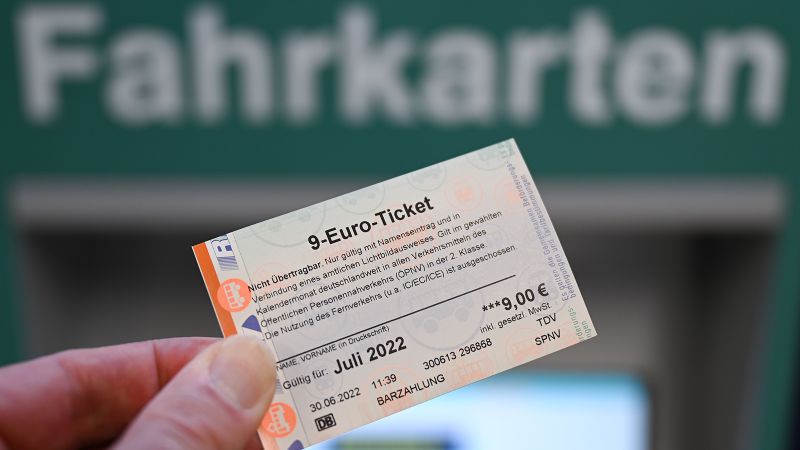The €9 Ticket Scheme in Germany: Transforming Regional Travel
The introduction of the €9 ticket scheme in Germany has significantly transformed regional travel, making it both accessible and affordable for many commuters. Here’s an overview of the key aspects of this initiative:
Improving Air Quality
One of the notable outcomes of the scheme is the improvement in air quality. Studies have indicated that air quality in urban areas improved by 6% over the first two months of the implementation. This enhancement is a positive ripple effect of increased use of public transportation.
The Ticket and Its Popularity
- Affordability: The tickets cost just 9 euros (approximately $9) and provide unlimited regional travel throughout Germany for one calendar month.
- High Demand: The popularity of the ticket was immense, with nearly 60 million tickets sold during the first two months of the three-month initiative.
- Regional Transport Only: The tickets were specifically valid for regional transport, keeping high-speed services like the ICE train available for those willing to pay more.
Challenges Faced
However, the overwhelming demand for the €9 ticket also led to some challenges. Overcrowding became a common issue on trains, and travelers experienced chaos at several stations. Consequently, security personnel had to be employed to assist travelers navigating through busy environments.
The Journey Continues
Although the ticket scheme faced some drawbacks, many travelers appreciated the newfound accessibility of regional train services. The initiative was launched with pre-sale options available in May for travel planned for June, July, and August, allowing countless travelers to benefit from it.
Final Thoughts
In summary, the €9 ticket scheme has proven to be a game-changer in German regional transport, promoting eco-friendly travel options and providing an accessible means of transportation for many. The overall impact has sparked discussions for future initiatives to enhance public transport accessibility further while addressing the challenges of overcrowding.




